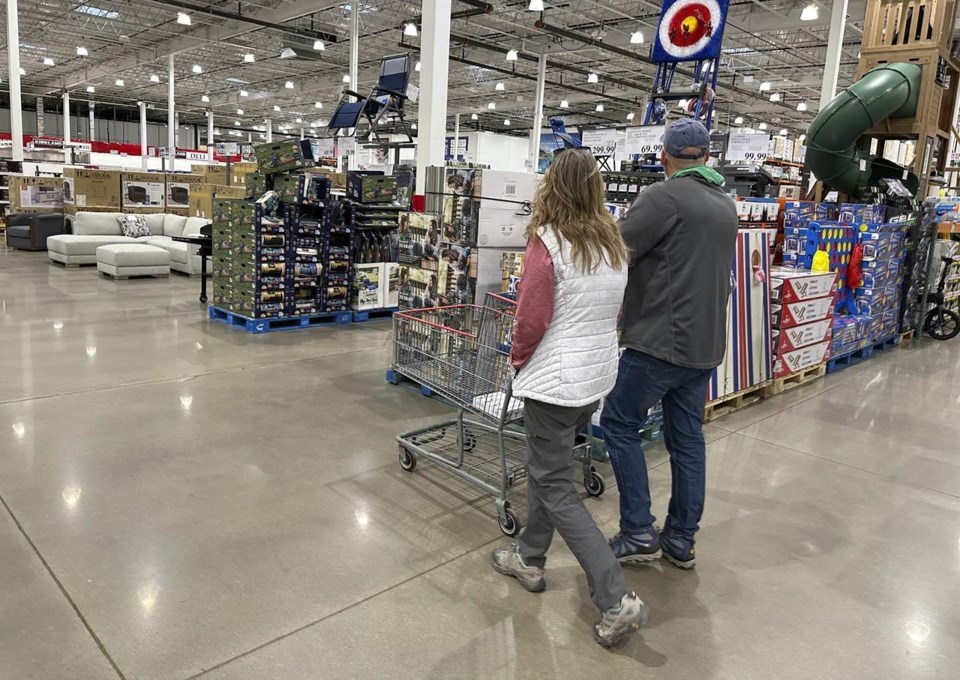U.S. consumer confidence held steady this month even as Americans wrestle with higher prices and feel less optimistic about the short-term future.
The Conference Board, a business research group, said Tuesday that its consumer confidence index ticked down to 104.7 in March from a revised 104.8 in February.
The index measures both Americans’ assessment of current economic conditions and their outlook for the next six months.
The index measuring Americans short-term expectations for income, business and the job market fell further, to 73.8 from 76.3 last month. A reading under 80 can signal a potential recession in the near future.
Consumers’ view of current conditions, however, improved to 151.0 from from 147.6.
Responses to the Conference Board's survey showed an increase in consumers' concern over food and gas prices and the U.S. political environment with the presidential election just seven months away. A poll last month by The Associated Press revealed that Americans increasingly think the economy is good, but only about half as many as those who think the economy is poor.
The board said confidence among consumers 55 years old and older improved, but deteriorated for those under 55. Respondents earning between $50,000 and $99,999 reported lower confidence while other income groups broadly felt more confident.
“Over the last six months, confidence has been moving sideways with no real trend to the upside or downside either by income or age group,” said Dana M. Peterson, the Conference Board's chief economist.
The stagnation of consumer confidence recently comes as most economic indicators show the U.S. economy in very good shape by historical standards, yet evidence of some anxiety has begun to creep in.
The government reported last month that the nation’s economy grew at an unexpectedly brisk 3.2% annual pace from October through December as Americans showed a continued willingness to spend freely. Retail sales also rose last month, but not as much as expected and a decline in January was revised even lower, suggesting that many Americans are growing more cautious with their money.
Still, the labor market continues to churn out jobs. U.S. employers added 275,000 jobs in February, and while the unemployment rate ticked up to 3.9% from 3.7%, it was the 25th straight month that joblessness has been below 4%, the longest stretch since the 1960s.
Matt Ott, The Associated Press


